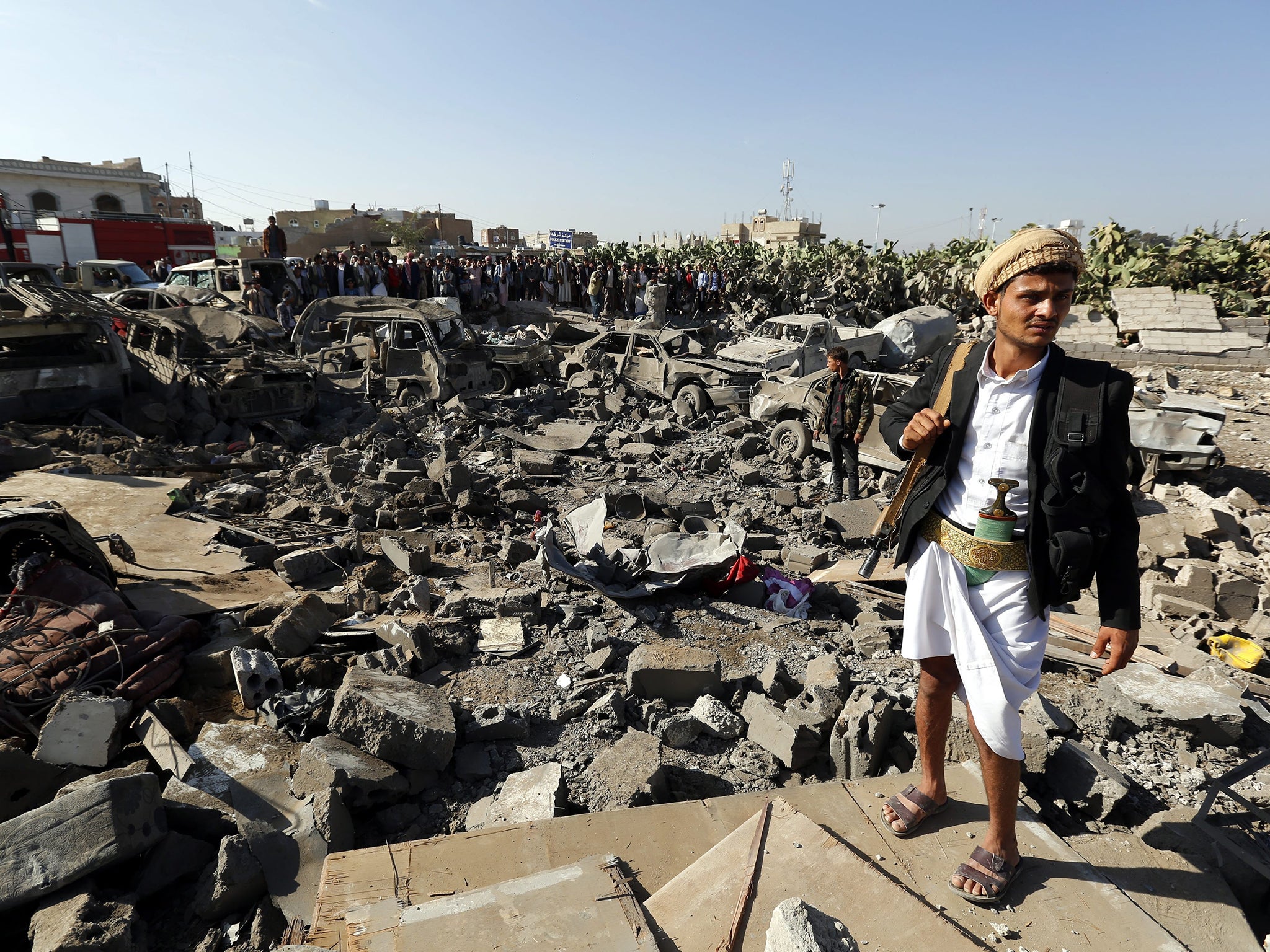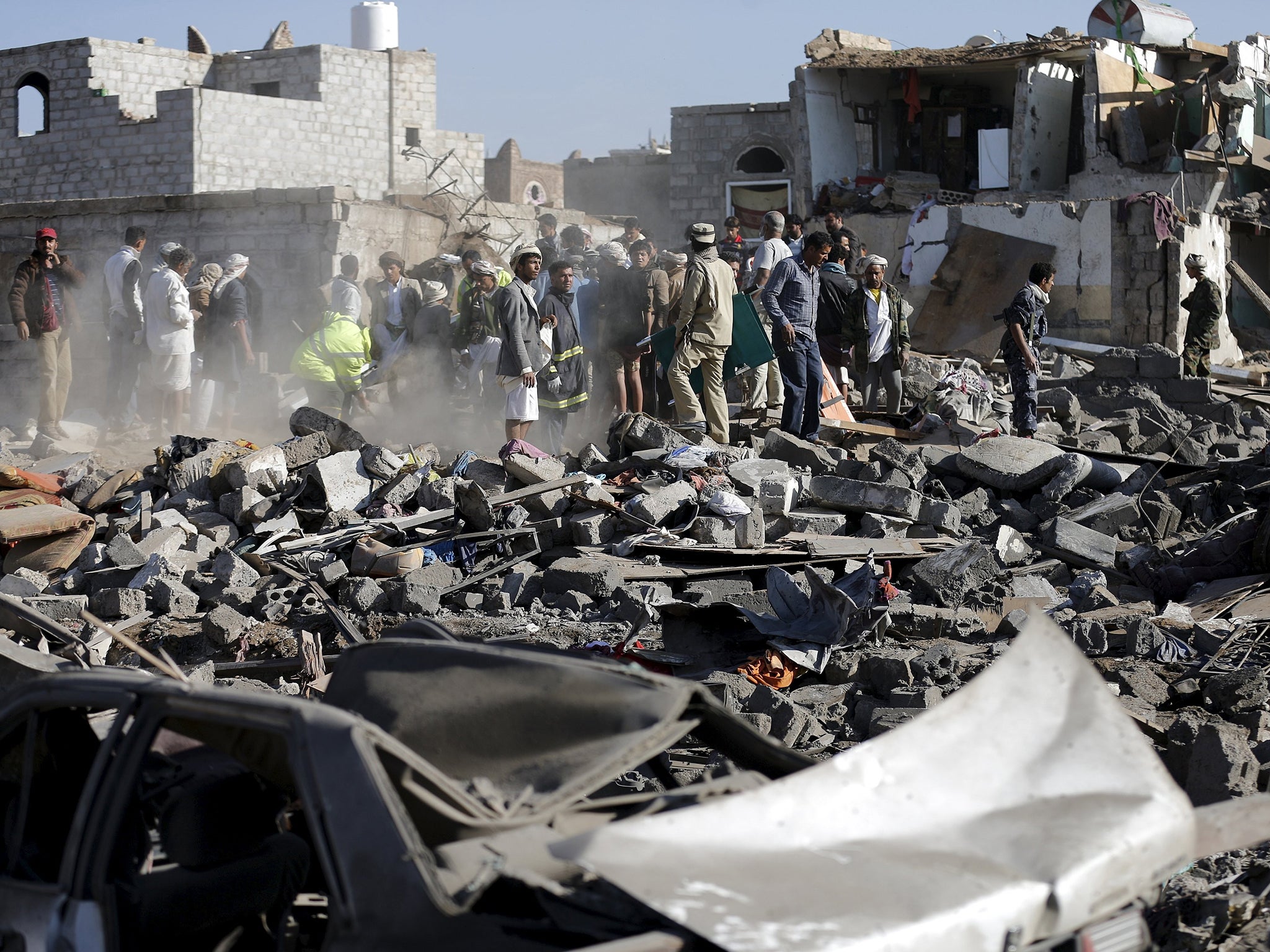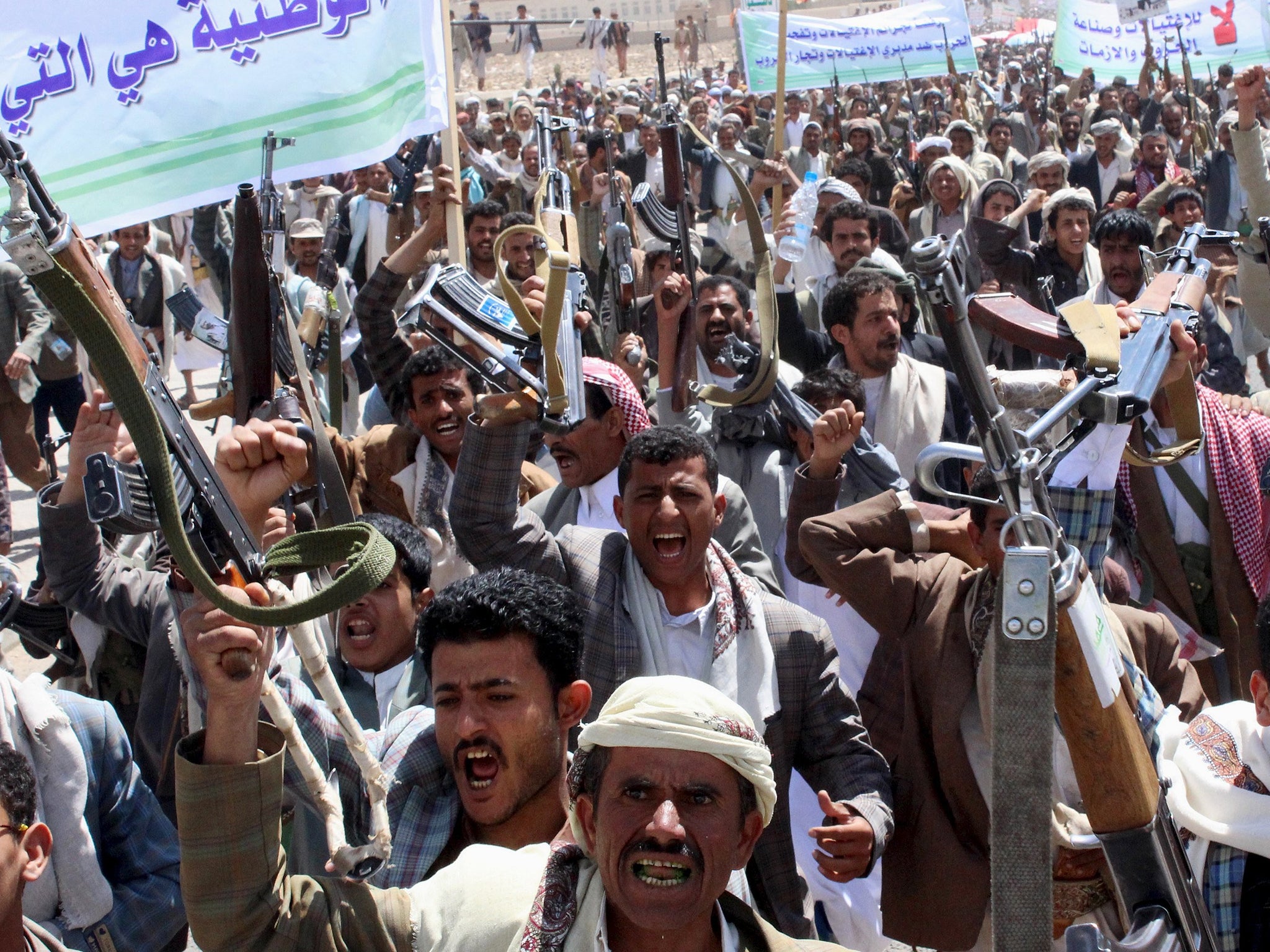Yemen crisis: Saudi Arabia and Sunni allies strike against Houthi militia fighting to control the country
Major escalation is gamble to check Iranian backing of Shia rebels trying to oust President Abed Rabbo Mansour Hadi

Your support helps us to tell the story
From reproductive rights to climate change to Big Tech, The Independent is on the ground when the story is developing. Whether it's investigating the financials of Elon Musk's pro-Trump PAC or producing our latest documentary, 'The A Word', which shines a light on the American women fighting for reproductive rights, we know how important it is to parse out the facts from the messaging.
At such a critical moment in US history, we need reporters on the ground. Your donation allows us to keep sending journalists to speak to both sides of the story.
The Independent is trusted by Americans across the entire political spectrum. And unlike many other quality news outlets, we choose not to lock Americans out of our reporting and analysis with paywalls. We believe quality journalism should be available to everyone, paid for by those who can afford it.
Your support makes all the difference.Saudi Arabia and its Sunni Arab allies have struck at Shia Muslim rebels fighting to oust Yemen’s President in a major gamble to check Iranian influence.
Iran denounced the surprise assault on the Houthi militia and made it clear that Saudi Arabia’s deployment of a Sunni coalition against its Shia enemies would complicate efforts to end a conflict that will only inflame sectarian hatreds.
The Saudi intervention marked a major escalation of the Yemen crisis, in which Iran backs the Houthis, and Sunni Muslim monarchies in the Gulf support President Abed Rabbo Mansour Hadi and his fellow Sunni loyalists in Yemen’s south. Mr Hadi reportedly arrived in Riyadh today and is expected to attend an Arab summit in Egypt this weekend.
In the Yemen capital of Sanaa, which Houthi rebels trying to oust the President seized in September, jets bombed the main airport and the nearby al-Dulaimi military air base in an attempt to weaken the Houthis’ air power and ability to fire missiles. Rescue workers put the death toll at 13, including a doctor pulled from the rubble of a clinic. In a day of heavy fighting, warplanes struck Houthi fighters near the Saudi border.

On the northern outskirts of Aden, Houthis and army loyalists fought extended gun battles with militiamen loyal to Mr Hadi. They retook Aden airport, a day after it was captured by forces allied to the Houthis. The facility remains closed. Saudi Arabia also cancelled flights to its southern airports.
There was also heavy street fighting in Houta, north of Aden, in which five pro-Houthi fighters and four militiamen were killed. Thousands of Houthi supporters gathered to condemn the air strikes at the gate to Sanaa’s old city, waving banners and chanting, “Death to America!”
In an apparent reference to Iran, the Saudi Foreign Minister Saud al-Faisal said the operation aimed to counter the “aggression of Houthi militias backed by regional powers”. Saudi-owned al-Arabiya TV reported that the kingdom was contributing 100 warplanes to operation “Storm of Resolve” and more than 85 were provided by the United Arab Emirates, Qatar, Bahrain, Kuwait, Jordan, Morocco and Sudan.
Jordan and Sudan said their forces were involved in the operation. Egyptian air forces were participating, and four naval ships headed to secure the Gulf of Aden. Pakistan was considering a request to send ground forces.

Meanwhile, Iran’s foreign ministry demanded an immediate halt to the “aggression” in Yemen, the semi-official Fars news agency reported. “Military actions in Yemen... will further complicate the situation,” Fars quoted the ministry spokeswoman Marzieh Afkham as saying.
Saud al-Sarhan, director of research at King Faisal Centre for Research and Islamic Studies in Riyadh, said: “It is a clear message on the ‘Saudi defence doctrine’. Security and stability in the Arabian Peninsula is a red line, and Saudi Arabia doesn’t tolerate any attempt to destabilise the region.”
While the advance against Mr Hadi has been publicly led by the Houthis, many Yemenis believe the real instigator is the former President Ali Abdullah Saleh, who retains influence in the army.
Yemen’s slide towards civil war has made it a crucial front in Saudi Arabia’s rivalry with Tehran, which Riyadh accuses of stirring up sectarian strife throughout the region. Iran denies funding and training the Houthis.
Mr Hadi had been holed up Aden with loyalist forces since he fled Houthi custody in February. A Houthi leader said the air strikes would set off a “wide war” in the region.
Reuters
Key Players in Yemen
President Abed Rabbo Mansour Hadi
Having formally assumed power three years ago, his support comes mainly from Sunni tribes in the south, ties to parts of the military and some militia groups.
Ali Abdullah Saleh
The former president is widely believed to be aligned with the Houthis against Mr Hadi.
Houthis
Mainly from northern Yemen, and part of the Zaidi offshoot of Shia Islam.
Al-Qaeda in the Arabian Peninsula (AQAP)
Seen by Western powers such as the US as one of the most dangerous branches of Al-Qaeda, They oppose both the Houthis and the government of Mr Hadi and have staged a number of attacks from their strongholds to the south and south east.
Sunni Tribes
Individual Sunni tribes also control their own parts of Yemen, opposed to the Shia Houthis. But there is no guarantee of support for Mr Hadi either.
Join our commenting forum
Join thought-provoking conversations, follow other Independent readers and see their replies
Comments